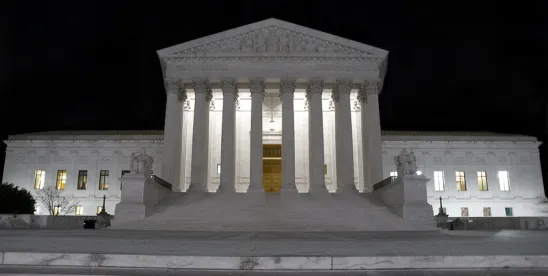The United States Supreme Court will not be providing an answer – at least for now – to the question of whether state and local government employees can bypass the Age Discrimination in Employment Act and instead head straight to court with age claims under 42 USC 1983. The Court this week dismissed the appeal in Madigan v. Levin, as “improvidently granted.”
While the Court did not provide an explanation, it appears from summaries of the oral argument on Oct. 7, 2013 that the justices determined there were jurisdictional and procedural issues that prevented the case from being an appropriate one to decide the question that has divided lower courts of appeal. For a recap of the oral argument see the SCOTUS blog summary here.
The case of Madigan v. Levin was brought by a former assistant attorney general in Illinois who alleged that he was unlawfully terminated at age 61 and replaced with a younger, female employee. At issue in the appeal by Illinois Attorney General Lisa Madigan was whether the ADEA displaced claims under 42 U.S.C. 1983, a question that has divided the courts of appeal that have addressed the subject. In the underlying appeal, the Seventh Circuit ruled that the employee-plaintiff was not limited solely to a claim under the ADEA. The question presented to the Supreme Court when it granted the petition for writ of certiorari was whether the Seventh Circuit erred in holding that state and local government employees may avoid the ADEA’s remedial regime by bringing age discrimination claims under the Constitution’s Equal Protection Clause and 42 U.S.C. 1983.
However, in the underlying case the state successfully argued that the Plaintiff fell under the ADEA’s exclusion for policy-making political appointees. Thus, the fact that the lower court determined that this particular individual could not bring a claim under the ADEA may have led the Supreme Court to determine that the case did not provide the right setting to rule on the larger legal question. Moreover, there were other jurisdictional issues raised in an amicus brief by law professors that also may have influenced the Supreme Court to send the case back to the lower courts for further action.
Click here to read our previous coverage of this case.



 />i
/>i
